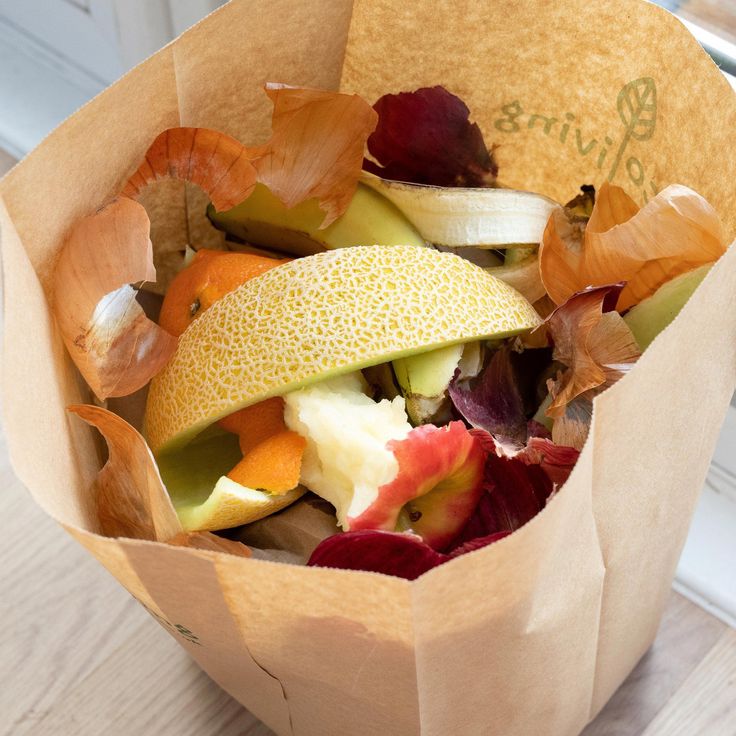 8 Simple Ways to Reduce Food Waste
8 Simple Ways to Reduce Food Waste

Food waste is a pressing global challenge, contributing to environmental harm and economic loss. From farm to table, countless resources are used to produce the food we eat, yet a staggering portion ends up discarded. By adopting simple strategies, we can minimize waste, save money, and make a meaningful difference for the planet. Reducing food waste doesn’t require drastic changes; small, consistent efforts can add up to significant results. Here are eight practical ways to cut down on food waste and foster sustainability in your daily life.
1. Plan Your Meals
Planning meals is a powerful way to prevent food waste. Before heading to the store, take inventory of what you already have, then create a weekly meal plan around those items. Make a detailed shopping list based on your plan to avoid overbuying or purchasing items you don’t need. By being intentional, you’ll reduce food waste and save money, ensuring every item you purchase has a purpose in your meals.
2. Store Food Properly
Proper storage extends the shelf life of food, keeping it fresher for longer. Store fruits and vegetables according to their specific needs—some thrive in the fridge, while others do better in a cool, dark place. Use airtight containers to maintain freshness for items like grains, nuts, and leftovers. Label containers with dates to track usage, helping you consume food before it spoils. Good storage habits go a long way in reducing unnecessary waste.

3. Cook the Right Amount
Cooking only what you need is a simple yet effective way to cut down on leftovers. Use portion guides or a food scale to measure ingredients accurately. When preparing meals, avoid making excess unless you intend to store and eat leftovers later. If you do have extra food, package it properly in reusable containers, label it with the date, and plan to consume it within a few days.
4. Get Creative with Leftovers
Leftovers don’t have to be boring. With a little creativity, they can become entirely new meals. Turn leftover rice into flavorful fried rice, mix roasted vegetables into a hearty soup, or use extra meat in wraps or salads. Smoothies are a great way to use overripe fruits, and stale bread can be transformed into croutons or breadcrumbs. Reinventing leftovers helps you maximize what you already have while adding variety to your meals.
5. Compost Food Scraps
Even with careful planning, some food waste is inevitable. Composting offers a sustainable solution by turning food scraps into nutrient-rich soil. Collect compostable items like vegetable peels, coffee grounds, eggshells, and fruit scraps. Add them to a compost bin or outdoor pile to create organic fertilizer for your garden. Composting reduces the amount of waste sent to landfills, lowering methane emissions and closing the loop on food waste.
6. Donate Excess Food
Excess food doesn’t have to go to waste—consider donating it to those in need. Local food banks, shelters, and community kitchens often accept donations of non-perishable items and fresh produce. If you host events or find yourself with surplus groceries, reach out to organizations that can redistribute the food. Donating not only reduces waste but also supports individuals and families facing food insecurity.
7. Shop Smart
Mindful shopping is key to reducing food waste. Start by making a list and sticking to it to avoid impulse buys. Check expiration dates and choose produce that will last until you’re ready to use it. Avoid bulk purchases unless you’re sure you can consume the items before they spoil. By shopping with intention, you’ll buy only what you need and prevent food from going unused.
8. Educate Yourself and Others
Understanding the impact of food waste is the first step to making change. Learn about its environmental, social, and economic consequences, and share your knowledge with family and friends. Encourage sustainable habits like meal planning, composting, and smart shopping. Hosting discussions or sharing tips on social media can inspire others to take action. Together, small individual efforts can drive significant progress in reducing food waste.
Related posts
- Securing Your Future: A Retirement Guide for Women - Lifestyle , mental health , retirement
- 12 Problems Women With Large Breasts Have To Deal With Everyday - Beauty , health , large breasts
- Fashion is a great depression - Style & Fashion , accessories , anorexia , body tissues
- 15 Characteristics of an Amazing Husband - Relationship , ideal husband qualities , psychology
- 11 Ways to Know if Your Diet is Healthy or Not - Health , anti-inflammatory , antioxidants , diet
Latest posts
- Decluttering Before Deep Cleaning: A Comprehensive Guide - Home & Garden , Decluttering , home
- The Graceful Shift: Embracing 12 Transformative Changes After 50 - Beauty , health , mental health , psychology
- The Exit Strategy: Financial Steps to Reclaim Your Life from a Toxic Marriage - Lifestyle , mental health , Relationship , Toxic Marriage
- 10 Fun and Fulfilling Hobbies That Cost Next to Nothing - Lifestyle , hobby , mental health
- 12 Reasons Men Walk Away from Relationships—And What They Really Mean - Relationship , psychology , Relationship
- What Plus-Size Women Secretly Wish Their Partners Knew About Dating Them - Relationship , plus size , plus-size women , Relationship
- The Duchess We Adore: 10 Reasons Kate Middleton Continues to Inspire - Entertainment , Kate Middleton
- Cute vs. Hot: Decoding Male Appeal - Relationship , cute guy , hot guy , psychology
- 12 Things A Woman First Notices In a Man - Relationship , psychology , Relationship
- The Impact of Long-term Singlehood: 6 Positive and 6 Negative Effects - Lifestyle , mental health , psychology , Singlehood